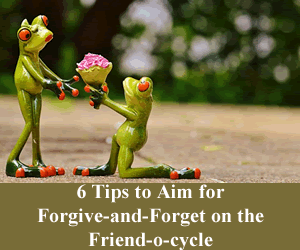 If you talk to any teacher, they will tell you that there are “good years” and “bad years” in the classroom. Certain classes are cohesive, harmonious and they just seem to click, while other classes are constantly full of conflict and drama. Social dynamics can make or break a year and have a huge impact on the wellbeing of students, parents, and teachers.
If you talk to any teacher, they will tell you that there are “good years” and “bad years” in the classroom. Certain classes are cohesive, harmonious and they just seem to click, while other classes are constantly full of conflict and drama. Social dynamics can make or break a year and have a huge impact on the wellbeing of students, parents, and teachers.
At URSTRONG, we teach children how to put out their Friendship Fires® (i.e. conflict in a friendship) step-by-step through an open, honest conversation.
The kids learn to retell the situation, explain how it made them feel, and have a conversation aimed at extinguishing the Fire. Occasionally, however, we see some children (and adults too!) who take talking-it-out to a whole new level where it moves from constructive to detrimental, sabotaging the goal of resolution, and uprooting the foundation of respect in their relationship.
While putting a voice to your feelings is important, indulging in it can be extremely unhealthy. Sometimes people blur the lines between constructive expression and down-right complaining. Nit-picking, bringing up past Fires, going on and on about every little thing comes from a place of needing to be heard, needing to be right, and not on solving the problem. To keep the focus on the end goal, and approach the Fire with love and respect, it is critical to strip away the ‘extras’ keeping in mind this is not a court case – you’re not an attorney laying out all the evidence! To work towards a resolution, keep it simple. Retell the situation, explain how it made you feel, and have a heart-based, resolution-based conversation. That’s it.
If you have an overwhelming need to ‘be heard’ and can’t help yourself from rehashing every little detail, here are a few suggestions:
Consider your timing. Ensure you’re having these ‘firey’ conversations when you’ve had a chance to cool down, think, and find clarity around what you want to say. Expressing your feelings when you’re heated is when we’re tempted to engage in these unhealthy behaviors and sparks start to fly! Give yourself time to chill out, think it through, and be mindful about your approach.
Look in the mirror. It’s very easy to point the finger in the other direction when we’re upset or hurt. Ask yourself, “What’s my part in this Fire?” Recognize that you’ve likely contributed and be accountable for your behavior.
Write. Journal your thoughts and feelings so that you can get it all out. After you do that, you’ll probably feel better and the dust can settle so that you can focus on what matters.
Phone a friend. Sometimes it’s valuable to get another person’s perspective, but this is also a fine line and it’s important you don’t cross that bridge into the land of gossip. Talk to someone you trust, who is neutral, who will give you their unbiased opinion and constructive advice. Be wary though: This process can sometimes be exhausting or frustrating for the person on the other end, especially if you’re using it as a forum to vent or you’re rejecting advice. If you just need a listening ear and you’re not looking for feedback, be sure to let them know in advance and keep it short.
While talking-it-out, keep your eyes on forgive-and-forget. Don’t be tempted to go on a side trip. Aim forward.
Be kind. Remember, you care about this person. Whether this is a friend, a spouse, a sibling, or a colleague, this is someone you have a relationship with and respect must be maintained. As the Dalai Lama says, “Be kind whenever possible. It’s always possible.”
If you continue to find yourself indulging in some of these unhealthy behaviors while putting out Fires, then it’s time to take a look at your relationship as a whole. Perhaps you have past Fires that you never put out? Perhaps this is a sign of an unhealthy relationship? Take a deeper look and maybe you’ll uncover the real reason you can’t seem to let it go.
My name, position, company, URL:
Dana Kerford
Founder & Friendship Expert
URSTRONG
www.urstrong.com


